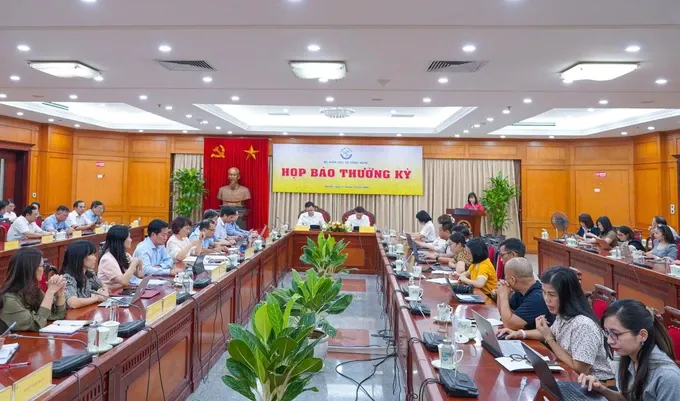
Deputy Director Pham Quang Minh of the Vietnam Atomic Energy Institute stated that in the context of combating climate change and balancing CO2 emissions in accordance with commitments made at COP26 and COP28, a green shift in the power generation structure is essential.
Besides playing a vital role in baseload power as well as ensuring the reliability and stability of the power system, nuclear power is a source of electricity that emits almost no CO2 just like hydropower and wind power, and it will be a significant power source in the power generation structure in the future.
Restarting nuclear power projects to serve Vietnam's socio-economic development is reflected in the context of long-term sustainable energy development policies, ensuring energy security when energy demands are climbing, and commitments to reduce carbon emissions to achieve the goal of carbon neutrality by 2050.
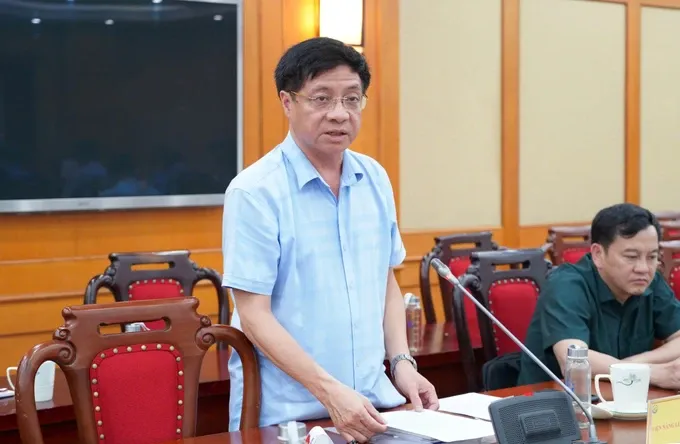
In the case of resuming nuclear power projects, applying advanced nuclear technologies and ensuring the highest safety standards is of paramount importance. Moreover, developing nuclear power will create a high-quality workforce to develop the country.
This is also an opportunity to strongly promote science and technology, especially to boost the application of nuclear techniques and radiation technology in the fields of medicine, agriculture, industry, and environmental resources to new heights; and to encourage foundational industries for national development (mechanical engineering, metrology, automation, chemical technology, metallurgical materials).
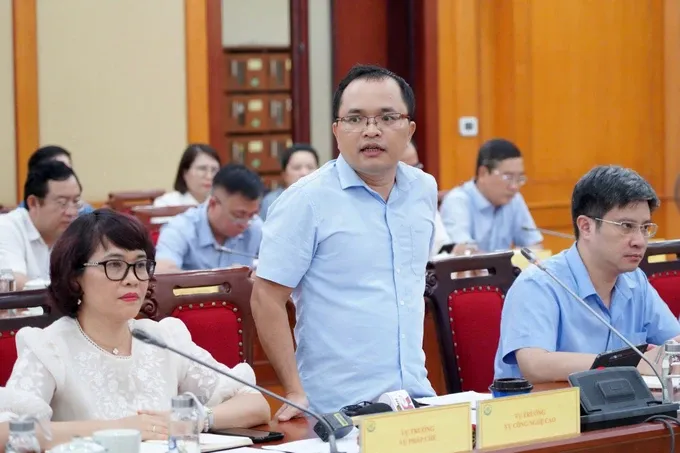
At the conference, Deputy Chief Tran Anh Tu of the High Technology Department (under the Ministry of Science and Technology – MOST) shared specific solutions and contributions of MOST to successfully implement Vietnam's Semiconductor Industry Development Strategy to 2030 and vision to 2050, recently issued by the Prime Minister.
Accordingly, MOST will cooperate with relevant ministries, state agencies, organizations, and enterprises to remove difficulties, continue to improve mechanisms and policies in order to promote the development of the semiconductor industry in Vietnam. At the same time, it will strengthen international cooperation in science and technology in the semiconductor field.
MOST will continue to organize scientific conferences, workshops, and other activities related to the semiconductor field to strengthen connections, attract domestic and foreign scientists, speakers to share, jointly research, and transfer technology in the semiconductor field.
Deputy Chief Tran Anh Tu also informed that MOST had proposed the Prime Minister to issue Decision 157/QD-TTg on February 1, 2021 on establishing a National Product Development Program until 2030, with a particular focus on semiconductor chips. Moreover, Circular 04/2024/TT-BKHCN outlines the management of this program.
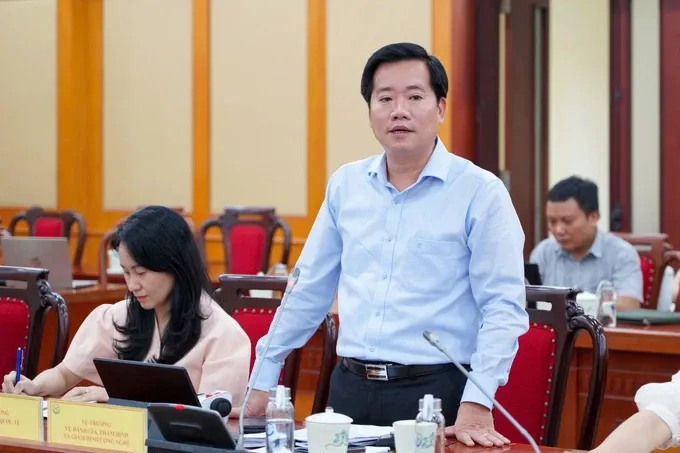
Chief Nguyen Hoang Linh of the Technology Appraisal, Examination and Assessment Department highlighted the ministry's efforts in facilitating technology transfer. MOST is currently drafting amendments to Decree 76/2018/ND-CP, which regulates technology transfer. The revised decree aims to streamline administrative procedures and encourage the adoption of new technologies.
The government is prioritizing the transfer of emerging technologies via simpler administrative procedures, offering tax incentives and support for research and development as well as product launching. This is in line with the continuous improvements of science and technology for the past few years.
However, the transfer of certain technologies, such as low-efficiency solar panels (under 20 percent) even for eco-friendly products, will be restricted. Additionally, outdated technologies like 1G and 2G, and illegal technologies such as malware, will be prohibited.
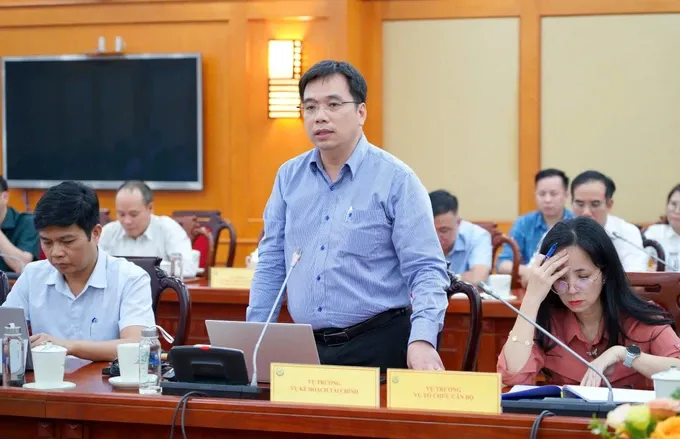
MOST is also working on amendments to Decree 95/2014/ND-CP, which governs investment and financial mechanisms for science and technology activities.
According to Chief Nguyen Nam Hai of the Planning and Finance Department under MOST, the revised decree will address issues related to the use of funds for research infrastructure and equipment. Furthermore, it will allow for more flexible use of science and technology development funds by enterprises.
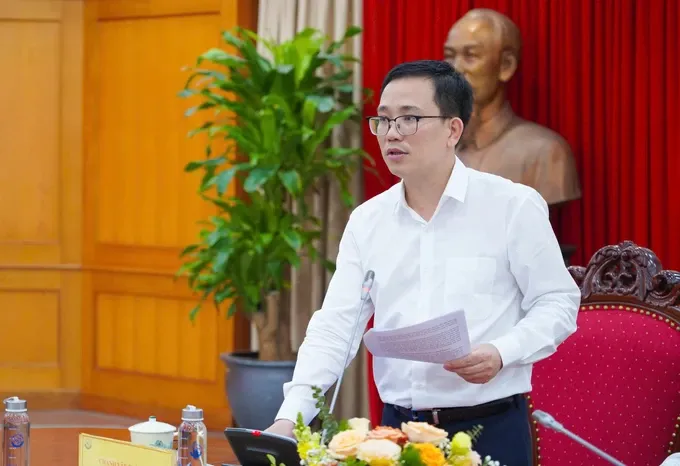
The fund will be exploited not merely for R&D activities but also for technology upgrades and innovative start-ups. This is supposed to tackle the problem of businesses' science-technology development funds having a surplus of thousands of billions of VND due to lack of a mechanism for use.
MOST has outlined its priorities for the remainder of 2024. The focus will be on finalizing specialized legal projects, including:
- Amending the Law on Standards and Technical Regulations to be presented to the 15th National Assembly at its 8th session;
- Drafting a revised Law on Nuclear Energy (amended);
- Ensuring the progress of preparing documents and projects in the Government’s task list as well as other legal documents under its authority.
MOST will continue to implement national-level science and technology programs through 2025 and 2030. These efforts will be complemented by local technology application programs. Furthermore, the ministry will organize major events such as:
- Techfest Vietnam 2024 in Hai Phong City;
- North Central Region Science and Technology Coordination Conference in Quang Binh Province;
- National Quality Awards.
























